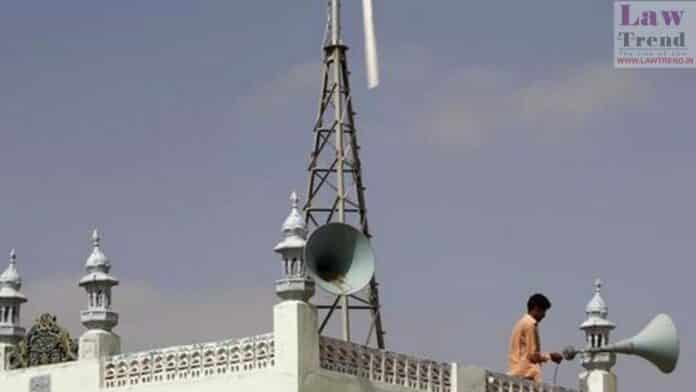The Gujarat High Court on Tuesday dismissed a Public Interest Litigation seeking a ban on the use of loudspeakers for azaan or the Islamic call to prayer at mosques, terming the plea as “wholly misconceived.”
A division bench of Chief Justice Sunita Agarwal and Justice Aniruddha P Mayee also asked, during the hearing, if it was the petitioner’s case that the noise of bells and gongs during `aarti’ at a temple is not heard outside.
The petition, filed by Bajrang Dal leader Shaktisinh Zala, claimed that “noise pollution” caused by azan when played through loudspeakers affects people’s, especially children’s health and causes inconvenience otherwise.

But the high court noted that the claims in the petition had no scientific foundation.
Azan is conducted for a maximum of ten minutes at a time at different hours of the day, the court pointed out.
“We fail to understand how the human voice making azan through loudspeaker in the morning could achieve the decibel (level) to the extent of creating noise pollution, causing health hazards for the public at large,” it further said.
Also Read
“We are not entertaining this kind of PIL. It is a faith and practice going for years, and it is for 5-10 minutes. In your temple, the morning aarti with drums and music also starts early at 3 am. So it does not cause any kind of noise to anyone? Can you say the noise of ghanta (bell) and ghadiyal (gong) remains in temple premises only, does not percolate outside the temple?” the court asked the petitioner’s lawyer.
There is a scientific method for measuring noise pollution, but the petition does not provide any data to show that a ten-minute azan causes noise pollution, the court noted.







